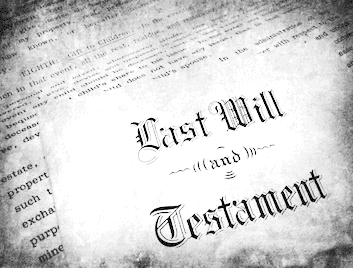Can My Husband Make a Will Without My Knowledge, and What Happens if He Does?

If you are asking can my husband make a will without my knowledge, the anwer is yes. Any person can make a will without telling their spouse. The will is valid for as long as the following requisites are present: (a) your husband had mental capacity and testamentary intent when he signed the will; (b) your husband was free from fraud, duress, undue influence, or mistake; and (c) the will was executed in accordance with the state’s rules.
Knowing that a will would be valid without the other spouse’s knowledge, the next issue would be whether the spouse could exclude the other spouse in his will, leaving the other spouse with nothing. The answer to this would depend on the state of residence of the married couple.
Community Property States vs. Separate Property States
Community property states generally treat all property acquired by spouses during the marriage as marital property, regardless of whose name the property is in. Separate property in community property states are: (a) gifts given to one spouse; (b) property either spouse owned before the marriage and kept separate during the marriage; and (c) inheritances. Community property states are Arizona, California, Idaho, Louisiana, Nevada, New Mexico, Texas, Washington, Wisconsin, and Alaska (opt-in).
The rest of the states are common law states. These states use the common law system of property ownership. Ownership is determined by whose name is on the deed, registration paper, or title document. If there is no title document, the spouse who paid for it or received it as a gift is considered the owner.
In this case, someone is asking can my husband make a will without my knowledge and they actually did, and you were residing in a community property state, the excluded spouse can claim that the property stated in the will (even if in the name of the deceased spouse only) is community property. In a common law state, the spouse cannot claim on property that is listed in the name of the deceased spouse alone, even if such property was acquired during marriage.
The state of the spouses is determined by their state of primary residence. This is evidenced by a lot of factors, which are all taken into consideration, such as the place where the spouses are registered as voters, the state of residence listed in the federal tax returns, the state where the spouses file their state income tax returns, and the state where the spouses have their bank accounts, to name a few.
Uniform Probate Code States vs. Non-Uniform Probate Code States
When you asked can my husband make a will without my knowledge and they did, another consideration in determining whether the exclusion of a spouse totally leaves the excluded spouse with nothing would depend on whether the state of residence of the couple has adopted the Uniform Probate Code (UPC) or not. Some states have adopted the UPC in entirety; others have adopted it selectively; while the rest have not adopted the UPC. It is best to consult with a lawyer about your remedies when you have been excluded from your spouse’s will.
Generally, the UPC provides the excluded spouse with the right to elect to take a portion of the deceased spouse’s probate and non-probate assets. Some states that have selectively adopted UPC allow the excluded spouse to elect to take a portion of the deceased spouse’s probate estate and some, but not all, of the non-probate assets. The non-UPC states allow the excluded spouse to take a portion of the deceased spouse’s probate estate and not the non-probate assets. For this reason, the deceased spouse can effectively disinherit the other spouse through proper estate planning by leaving no assets in the probate estate. Georgia provides the least protection to the spouse, where a surviving spouse excluded in the will can only receive a monetary allowance from the deceased spouse’s estate for one year following the death of the spouse.
In New York, a spouse is protected by granting the surviving spouse an “elective share” of the deceased spouse’s assets which is defined as the greater of $50,000 or 1/3 of the estate. This spousal right of election can be filed by an excluded spouse who has inherited assets in the will that are less than the elective share. New York is a state that has adopted the UPC selectively.
In Florida, the elective share of the surviving spouse is 30% of the deceased spouse’s estate. If the surviving spouse receives less than 30% of the estate, he/she can claim the elective share. Florida is a state that has adopted the UPC in its entirety.
Claiming the elective share is different in every state. In New York, the notice of election must be done within 6 months of the appointment of the executor of the estate and within 2 years of date of death of the decedent. In Florida, the claim for an elective share must be filed 6 months of service of notice of administration, or two years from the decedent’s death, whichever comes earlier.
If you are asking can my husband make a will without my knowledge, your situation is serious. Because of these strict statutory deadlines, it is important to immediately consult with an estate litigation lawyer when a surviving spouse has been excluded from the will or has received less than the elective share. If you have been excluded from the will, we, at the Law Offices of Albert Goodwin, are here for you. You can call us at 1-800-600-8267 or send us an email at [email protected].













